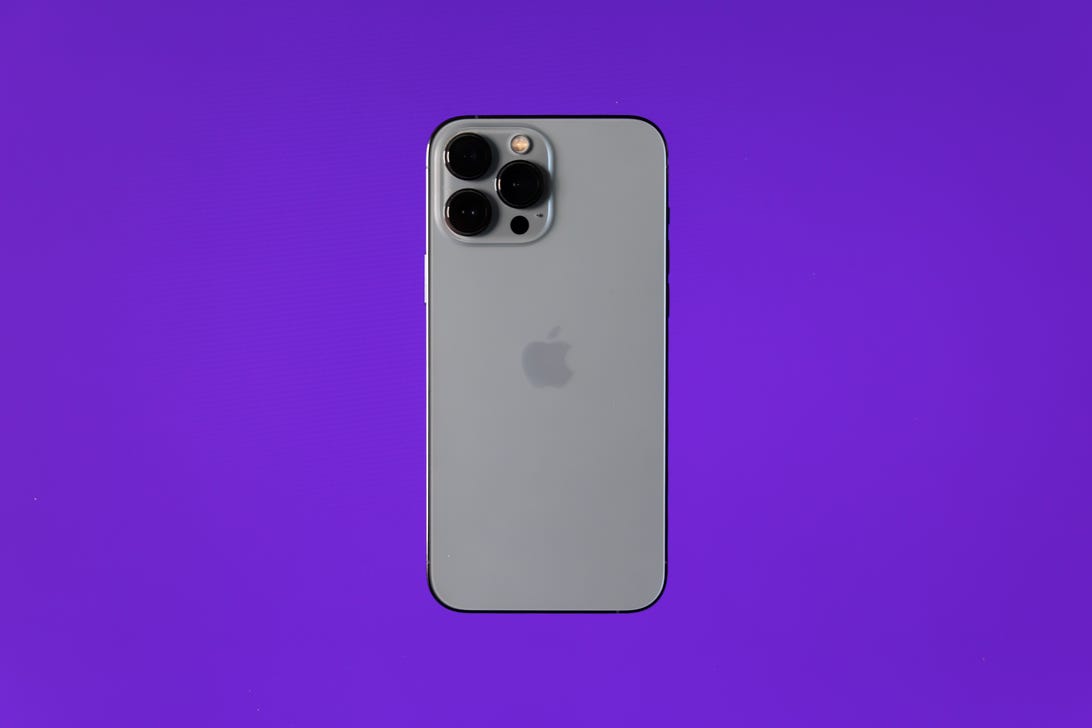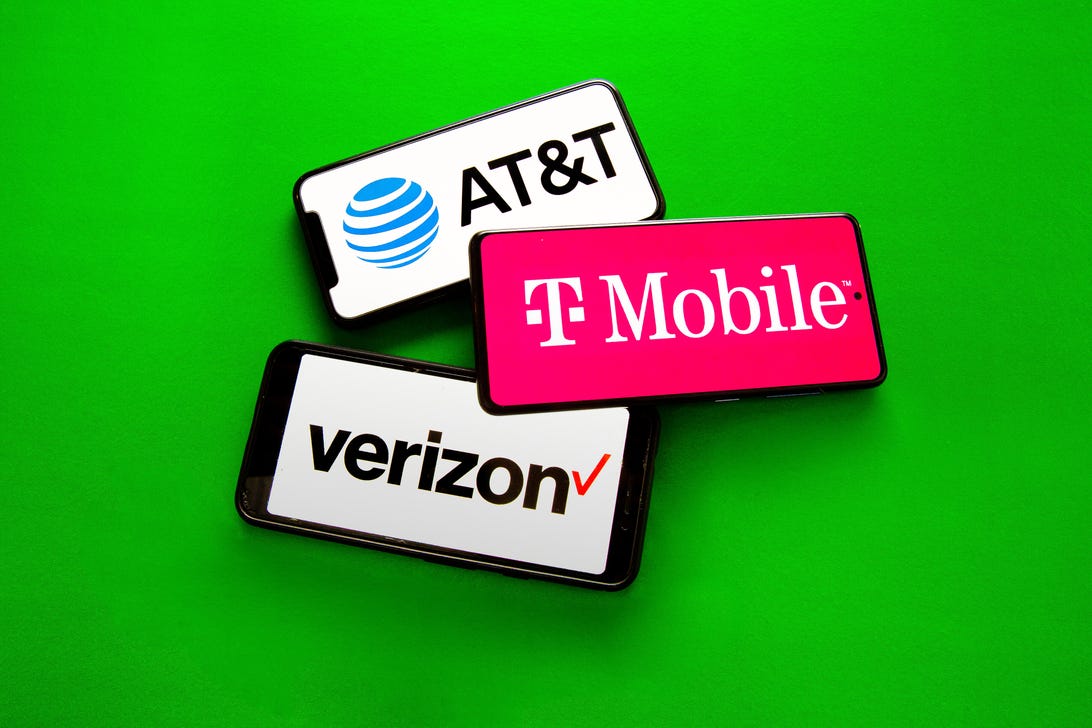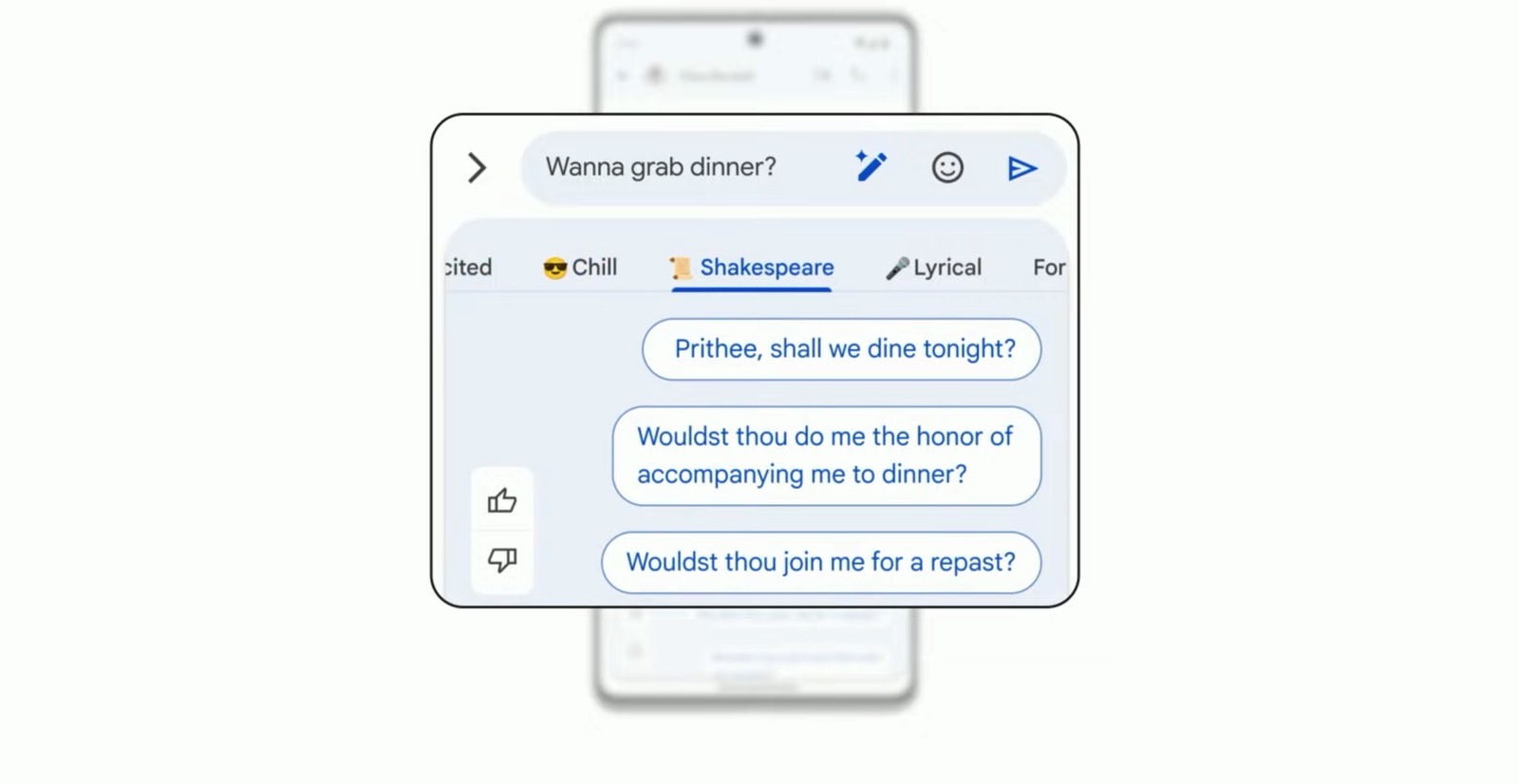
Apple's iPhone 13 Pro.
James Martin/CNETYou might soon be able to upgrade your iPhone the same way you pay for Netflix, Amazon Prime and the many other products you rely on: a subscription. That's according to Bloomberg, which recently reported that Apple is developing a subscription plan that would let customers pay a monthly fee for an iPhone rather than buy it outright or through installments.
Let me say up front that I think this idea could help to change the tech industry. I know, the idea of Apple changing the tech industry is eye roll worthy already. But hear me out.
Leasing iPhones instead of selling them traditionally -- if the idea catches on -- could put a serious dent in the tech industry's growing mountain of e-waste.
Since launching the iPhone in 2007, Apple has shipped enough smartphones to circle the Earth more than a dozen times. And Apple's mammoth success, alongside countless other computer and gadget makers, has come at a high cost, counted in tons of aluminum, cobalt, copper, glass, gold, lithium and many other raw materials that go into making the device you're reading on right now.
A leasing program could help Apple move closer to its goal of creating an iPhone completely sourced from recycled materials, all while convincing users to upgrade their phone every year. More subscribers would equal more revenue for Apple and potentially more iPhones with recycled materials inside.
There are other reasons a program like this could be smart. Leasing iPhones instead of selling them would give fans an easy way to upgrade to the newest model without swallowing the high lump-sum prices Apple charges for phones like the $699 iPhone 13 Mini or $1,099 Pro Max. For Apple, an iPhone subscription offering would likely result in a healthy boost to two of its most important business segments: revenue from the iPhone and digital services like iCloud and Apple TV Plus.
Still, the concept raises many questions.
We don't know how much Apple would charge for such a program. So weighing whether it's "worth it" is tough until there's a price. What would happen at the end of the leasing period is also a mystery. (Apple didn't immediately respond to CNET's request for comment about Bloomberg's report.)
There are also already a dizzying number of purchase options to choose from, between trade-in offers, carrier subsidies and Apple's existing iPhone upgrade program. No matter Apple's plan, it would have to be substantially more affordable than these other phone payment options to really catch on with consumers.
Plus, customers are already burned out by the growing number of monthly subscriptions, from streaming services to cell carrier plans to cloud storage. I can think of 10 different digital services I'm currently subscribed to right off the bat, without going through my credit card statements. Are we all willing to add yet another one?
An iPhone subscription could help make recycling your iPhone the norm

Apple's Daisy robot is designed to extract parts from recycled iPhones.
James Martin/CNETOver the past several years, Apple has been very vocal about its plans to reduce its carbon footprint. In some ways, an iPhone subscription plan looks like the logical next step. The offering could include the option to swap out older devices for newer models, according to the report, possibly giving iPhone shoppers another incentive to recycle their old iPhones through Apple.
Apple has made steady progress in its eco-friendly ambitions in the last several years. In 2016, the company introduced Liam, its first robot designed to disassemble iPhones and reuse their parts, before announcing a new robot, called Daisy, in 2018. With the iPhone 12, Apple also stopped including chargers and wired headphones in its iPhone packaging, to reduce waste, a move Samsung mimicked. Among Apple's most ambitious efforts is its pledge to become carbon neutral by 2030.
Over the long term, Apple also wants to build its iPhones without having to source new materials. It's already progressing on that front. The iPhone 13 is the first Apple product to use 100% certified recycled gold in the main logic board's plating. And Apple just announced plans to make the new iPhone SE using low-carbon aluminum.
Such investments show that Apple is putting resources into the behind-the-scenes work that goes into recycling iPhones. By launching an iPhone subscription plan, Apple could make its green initiatives a more crucial part of the iPhone shopping experience, too. Apple has been publicly promoting its trade-in offers and iPhone upgrade program for years, but a subscription service would make it a more integral part of Apple's iPhone business model.
Though it's true Apple and other retailers already offer trade-in programs, global recycling rates have been low. On average, only 20% of electronic waste is officially reported and properly collected, says a January 2019 report from the World Economic Forum and Platform for Accelerating the Circular Economy. Just like you'd trade in your car once your lease is up, perhaps this program could help make iPhone trade-ins a standard industry practice rather than just an option to save money.
Aside from potentially helping Apple reduce waste, an iPhone subscription plan could be better for your wallet. Apple, wireless carriers and retailers already offer major trade-in discounts and monthly installment plans. But unlike those existing payment options, this new offering wouldn't split the cost of the device over 12 or 24 months, reports Bloomberg.
Instead, customers would reportedly pay a set amount that would vary depending on the device. That means a subscription service might end up being cheaper than current plans if shoppers don't have to cover the entire cost of the device. But again, we don't know for sure, since this is based on Bloomberg's report rather than official word from Apple.
The iPhone 13 Pro costs $999, or roughly $27 or $41 per month, depending on whether you agree to a 24-month or 36-month commitment through Apple or wireless carriers. At the cheaper end of the spectrum is the older iPhone 11, which usually starts at $499, or about $14 per month. Apple, carriers and retailers usually provide discounts for phone trade-ins or for signing up for new service plans.
Apple also offers an iPhone upgrade plan, which lets users get a new iPhone every year after covering the device's cost in 12 monthly payments. It starts at $35.33 per month and includes AppleCare Plus coverage.
There are obviously other benefits for Apple, too. The iPhone is Apple's biggest moneymaker, so any new offerings that have the potential to drive iPhone growth will be looked on favorably by Wall Street. Finding new ways to encourage iPhone upgrades is also especially important now that people have been holding onto older phones for longer periods of time.
More options might not always be a good thing

Carriers offer many compelling discounts and trade-in deals for those looking to upgrade their phone.
Sarah Tew/CNETWhile subscribing to your iPhone on a monthly basis has the potential to be better for the environment and more cost effective, there's also a chance it could make things more complicated. With so many upgrade options available, it might be difficult to tell whether subscribing to your iPhone is truly the best deal.
Carriers already offer aggressive trade-in deals, particularly around iPhone launch season, to entice new customers and lock in current subscribers. Such bargains were a big focus during Apple's iPhone 13 launch, with carriers like AT&T and Verizon offering to cover the base cost for certain models of Apple's newest iPhone. However, these discounts often require customers to trade in their old phone and subscribe to the right plan.
If Apple does introduce a compelling iPhone subscription deal, it wouldn't be surprising to see carriers either work with Apple or launch new ways to compete. As a customer, that might mean more research and fine print to sift through to find the most affordable option. (But don't worry, if Apple does launch an iPhone subscription, CNET will do that research for you.)
And as mentioned, there's the question of whether people are already overwhelmed by the sheer number of subscription services available today. In the 15th edition of Deloitte's digital media trends report, which surveyed 2,009 US consumers in February 2021, 53% of respondents were frustrated by the number of services they had to subscribe to in order to access the content they wanted. Those customers might not want to start subscribing to their iPhone, too.
And despite the progress Apple has made in its green initiatives, such moves come after it's faced years of criticism about the repairability of its iPhones and other products. The company only just introduced a program, in November, that allows gadget owners to order components from Apple to repair their own devices.
There are plenty of questions that need to be answered. We have no idea how much a service like this could cost, or whether it'll even launch at all. But it would give Apple an opportunity to prove just how important repurposing iPhones has become -- not just the process of building iPhones, but of selling them too.
Apple Might Start Leasing iPhones. Here's Why That's a Good Idea - CNET
Read More

No comments:
Post a Comment